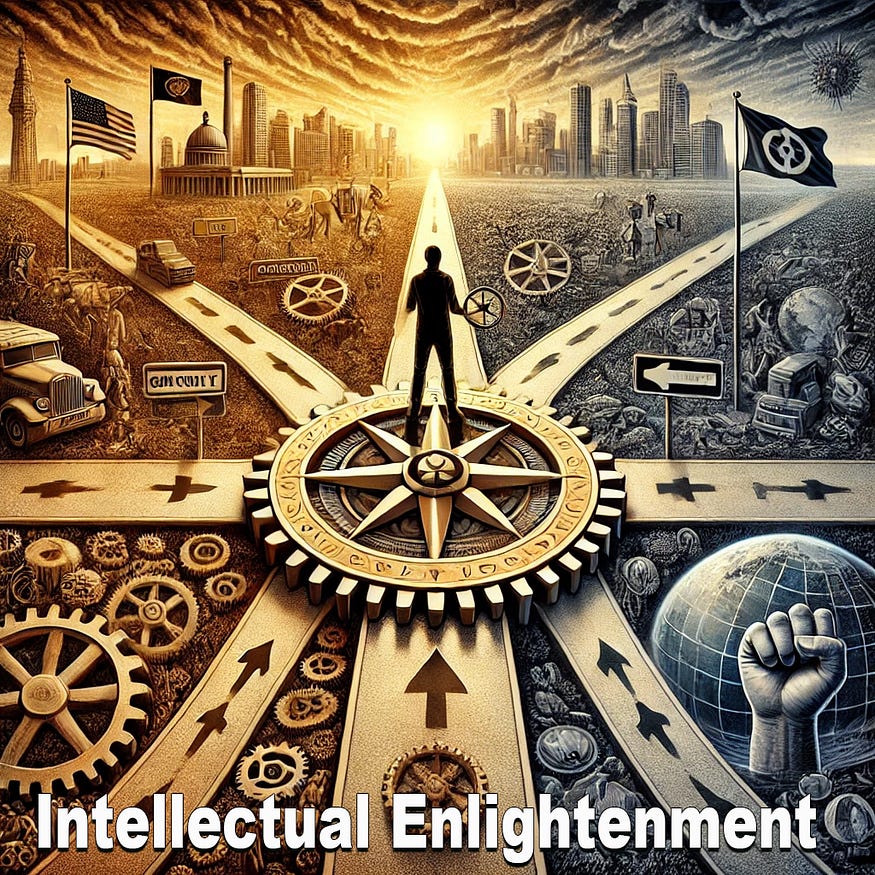Navigating the Nexus of Transformation: Embracing a Pivotal Era of Change
In the midst of rapid technological, social, and geopolitical shifts, humanity stands at the crossroads of unprecedented opportunities and challenges.

Introduction: We are living in an era defined by extraordinary change, a pivotal period driven by technological advancements, social upheavals, and global challenges that are reshaping our world. This confluence of factors presents both remarkable opportunities and significant challenges, demanding a re-evaluation of how we interact with technology, manage our environment, and navigate the shifting geopolitical landscape.
1. Technological Revolution:
Artificial Intelligence and Automation: The technological revolution is epitomized by the rapid development of Artificial Intelligence (AI) and automation. These innovations are transforming industries and economies, reshaping the labor market, and altering the nature of work itself. While AI offers the potential for increased efficiency and the creation of new job categories, it also raises critical questions about job displacement, ethical AI use, and the societal impact of automation on human livelihoods.
Digital Transformation: Parallel to the rise of AI is the digital transformation that has permeated every aspect of life. From communication and commerce to education and entertainment, digital technologies are changing how we live and work. However, this transformation brings with it concerns about privacy, cybersecurity, and the growing digital divide, which could exacerbate existing inequalities.
2. Global Health and Environmental Challenges:
Climate Change: One of the most pressing challenges of our time is climate change. The planet is experiencing unprecedented environmental shifts, including rising temperatures, extreme weather events, and biodiversity loss. These changes pose existential threats to ecosystems and human societies alike. Addressing climate change requires urgent action, innovative policies, and a global commitment to sustainable energy solutions.
Public Health: The COVID-19 pandemic has starkly highlighted the vulnerabilities of global health systems. The crisis underscored the importance of preparedness, international cooperation, and equitable access to healthcare. As the world recovers, there is a pressing need to strengthen healthcare infrastructures and address disparities to better prepare for future pandemics and health crises.
3. Geopolitical Shifts:
Changing Global Power Dynamics: The balance of global power is shifting, with emerging economies such as China and India playing increasingly prominent roles. This shift is leading to new geopolitical tensions, realignments, and challenges to the established international order. As these dynamics evolve, they will shape the future of global governance, trade, and security.
Democratic Challenges: Democracies around the world are under pressure, facing internal and external challenges that threaten their stability. Political polarization, the spread of misinformation, and the rise of authoritarianism are testing the resilience of democratic institutions. Safeguarding democratic values and institutions is crucial as we navigate this era of rapid change.
4. Social and Cultural Transformation:
Social Justice Movements: Movements advocating for racial, gender, and economic justice are gaining momentum, challenging entrenched inequalities and demanding systemic change. These movements are catalyzing important discussions about identity, rights, and the structure of society, driving progress towards a more equitable world.
Cultural Shifts: Global connectivity has led to an unprecedented exchange of cultures, ideas, and values. This interaction offers opportunities for greater understanding and collaboration but also presents challenges related to cultural preservation and identity. Navigating these shifts requires a delicate balance between embracing diversity and maintaining cultural integrity.
Conclusion: This pivotal period is defined by the convergence of these profound changes, each with the potential to reshape our world in significant ways. The decisions we make today — whether in technology, environmental policy, global governance, or social justice — will determine the direction of our future. As we stand at this crossroads, the challenge lies in harnessing these changes to create a more equitable, sustainable, and innovative world. Our current moment is one of the most crucial in modern history, and the choices we make now will echo through generations to come.

